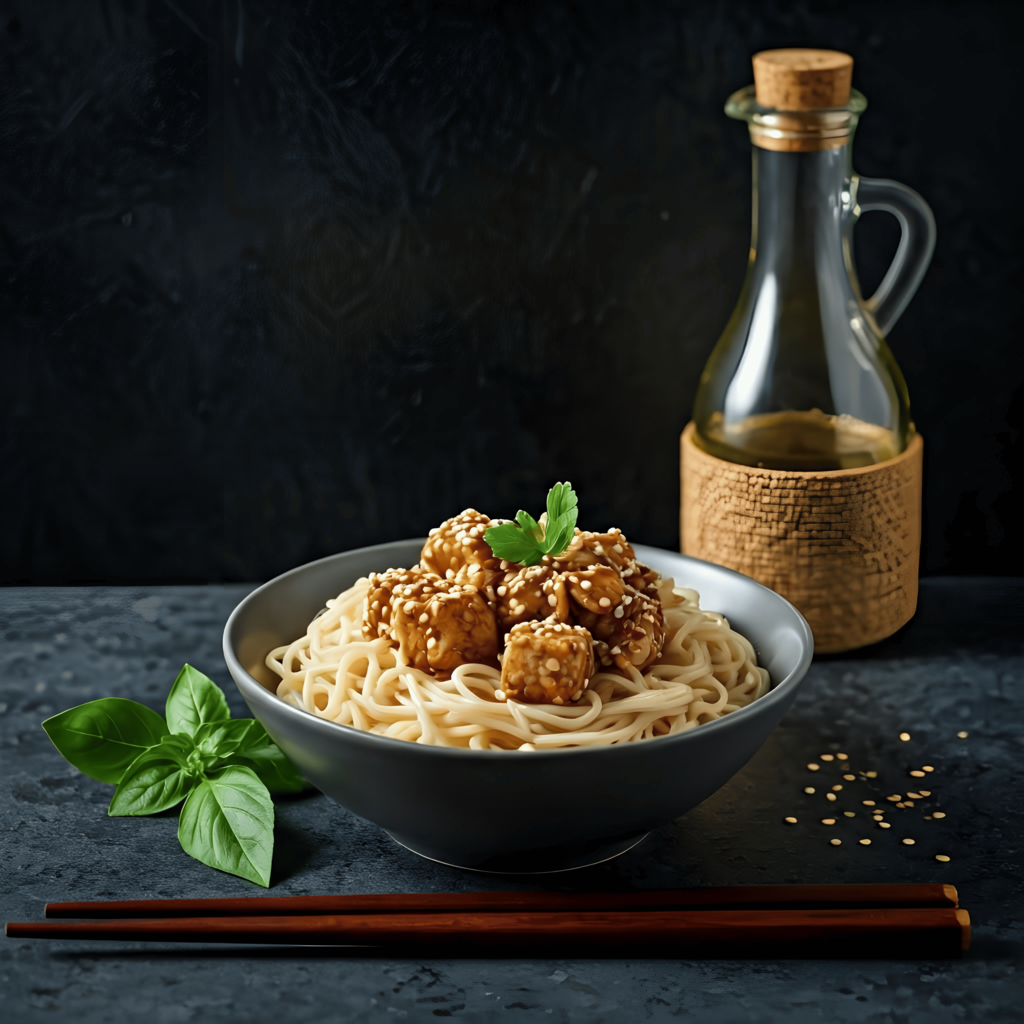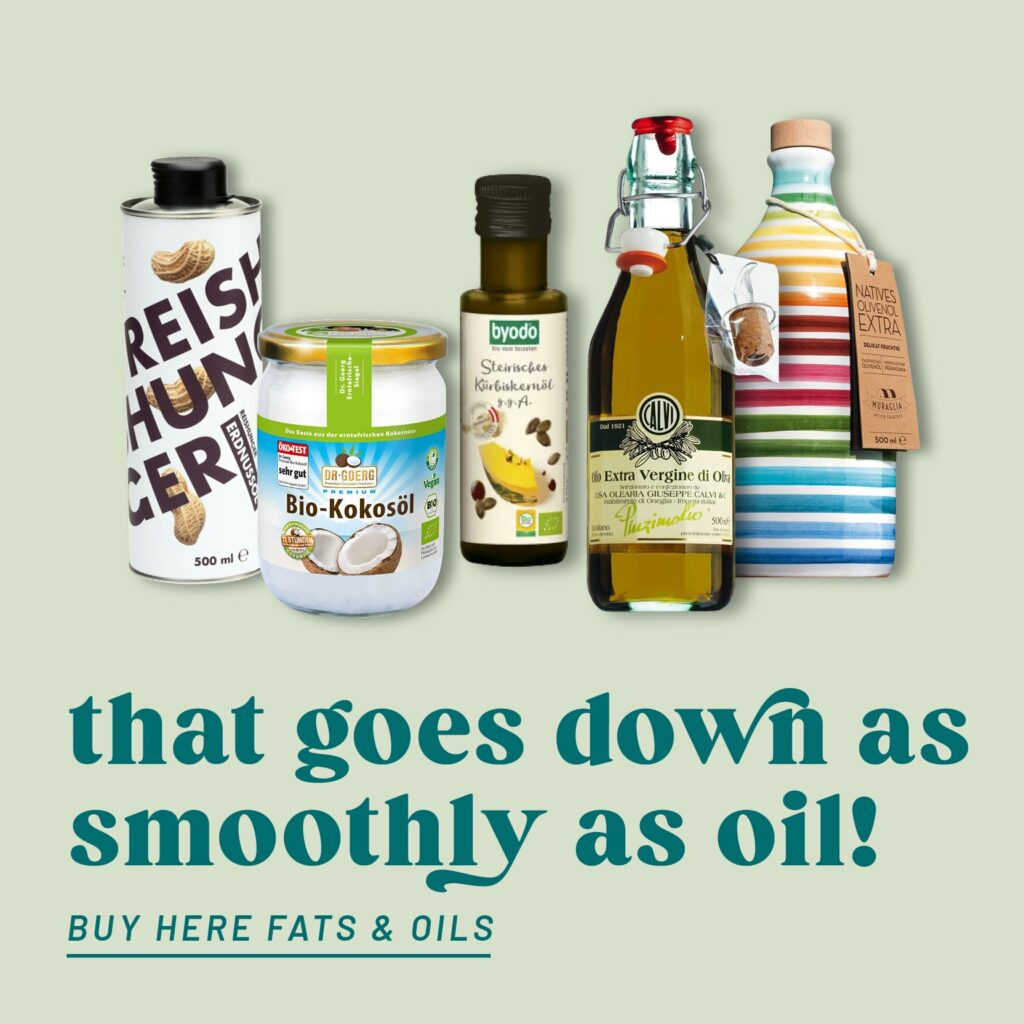GESUNDHEIT
A fat yield

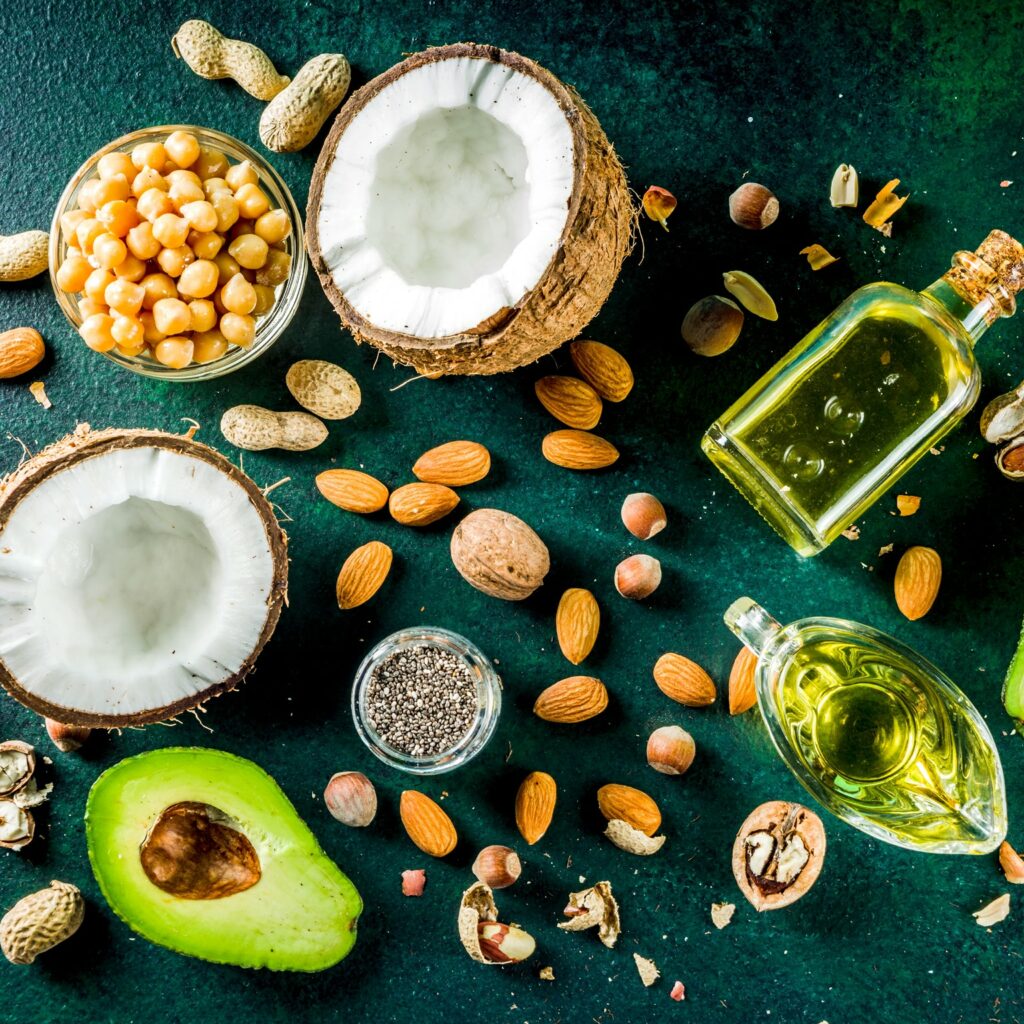
Why oils and fats are not only delicious but indispensable for humans
Fats often have a bad reputation – many people immediately think of weight gain, sluggish metabolism or negative effects on the liver. But that’s not the whole story. In fact, fats are essential for the human body and an essential part of a balanced diet. Rather than avoiding fats altogether, the focus should be on eating the right, healthy fats – and using them wisely in the kitchen.
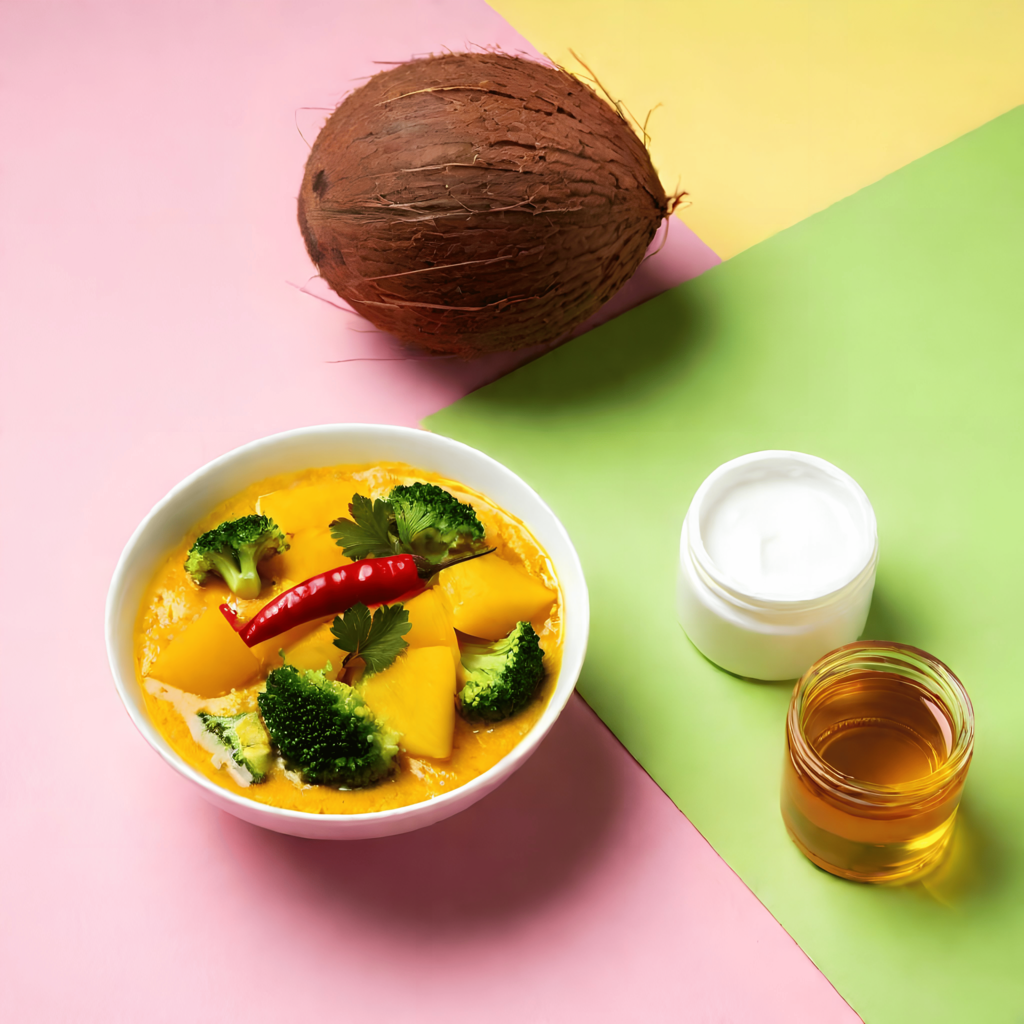
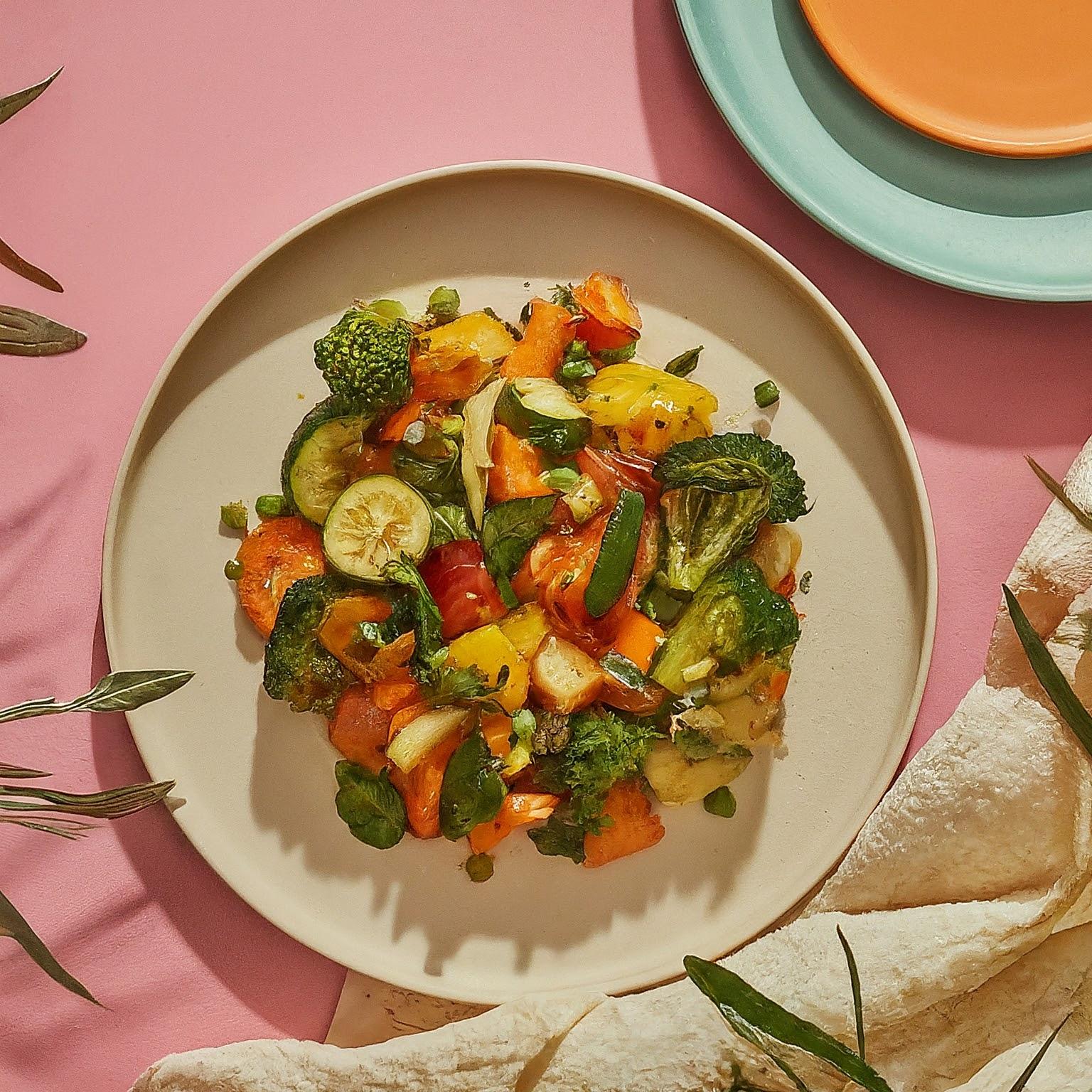
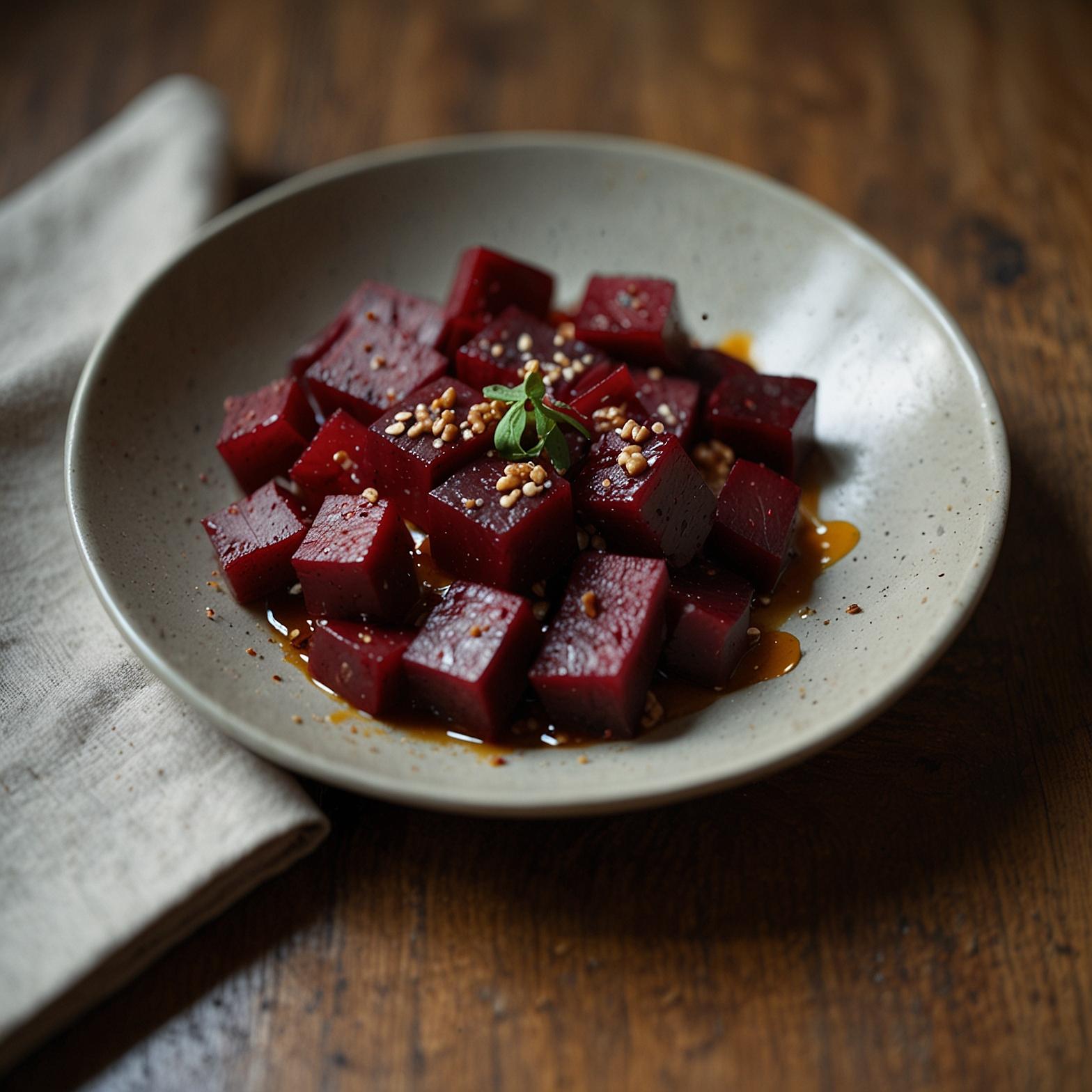
Healthy fats – more than just taste
Fats not only provide energy, they also carry important nutrients such as omega-3 and omega-6 fatty acids. These cannot be produced by the body and must be obtained from food. They also help the body absorb fat-soluble vitamins such as A, D, E and K, which are essential for a strong immune system, healthy skin and strong bones. Quality vegetable oils and fats therefore offer a wealth of health benefits and are essential to a healthy diet – especially when used wisely in different cooking styles.
Vegetable fats in vegan cooking – variety and taste
Vegan and international cuisines offer a wide range of vegetable fats that are not only healthy, but also add flavour. From olive oil to coconut oil, there is a wide variety of products suitable for different dishes and cooking methods.
The top 5 vegetable fats
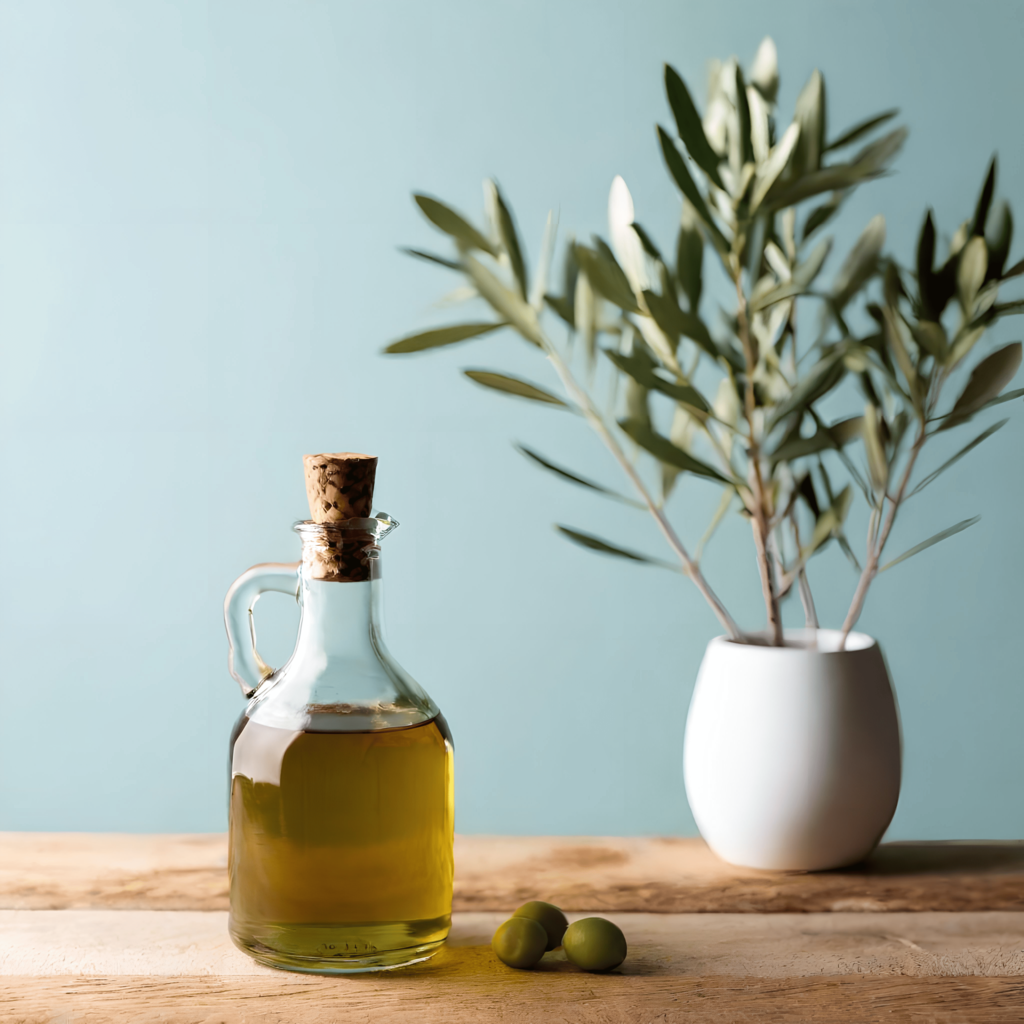
1. Olive Oil
This oil is a classic of Mediterranean cuisine. It is ideal for salads, pasta dishes and to enhance soups and stews. Unlike saturated fats, olive oil contains monounsaturated fats, which are good for the cardiovascular system. Especially in the cold season, a good cold-pressed olive oil enriches dishes such as ratatouille and Italian vegetable stews.
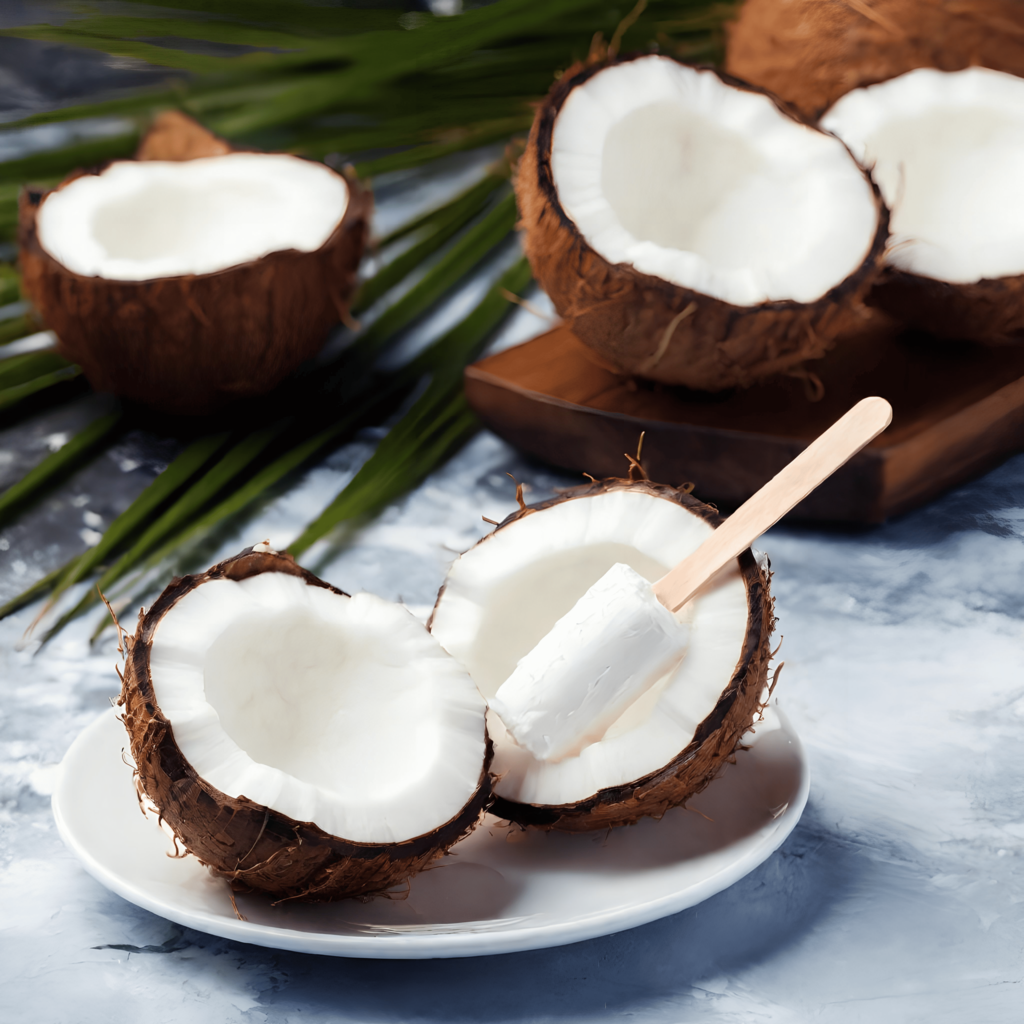
2. Coconut oil
Widely used in Asian and tropical cuisines, coconut oil is high in saturated fats, which provide the body with quick energy. It is particularly good for frying and deep-frying as it is heat resistant. Coconut oil is also a wonderful addition to winter currys and hot and cold desserts as its aroma gives the food an exotic, warming note.
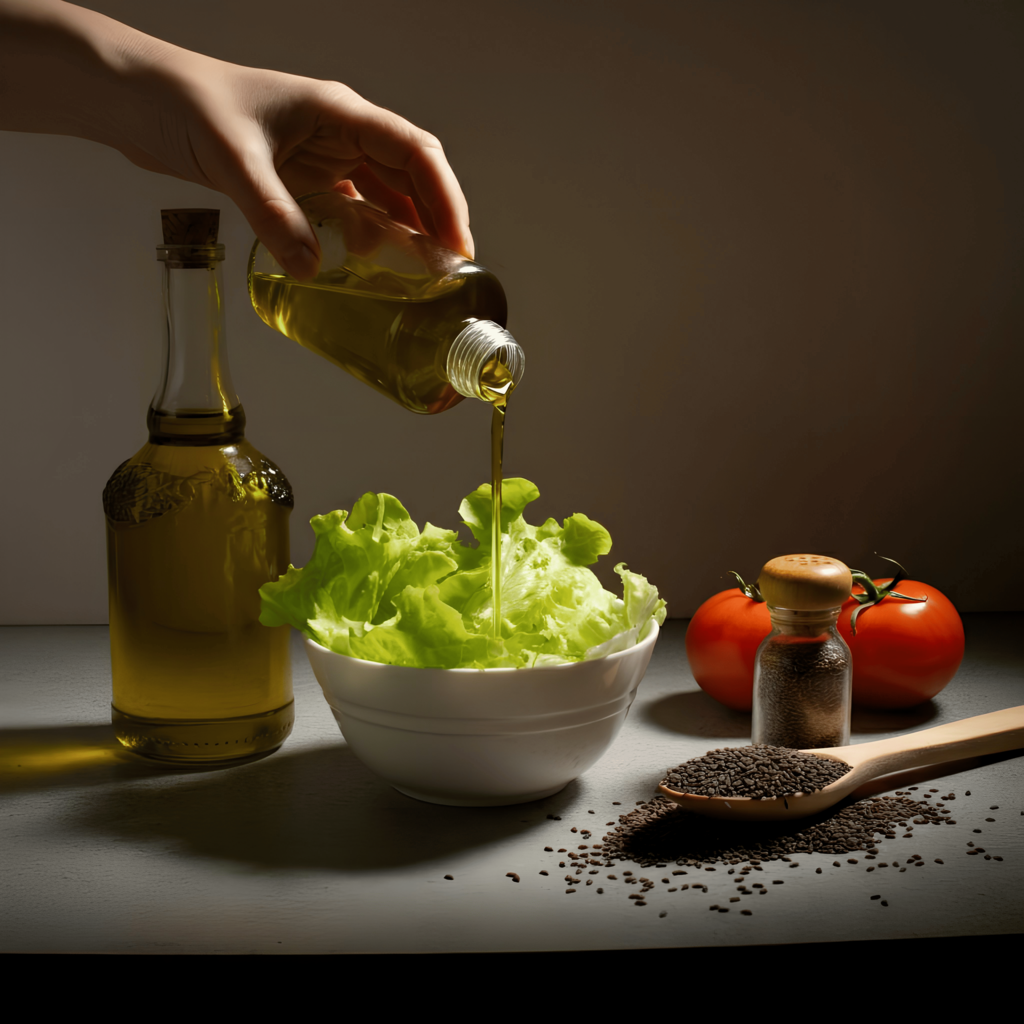
3. Linseed oil
Linseed oil is a true superfood, rich in omega-3 fatty acids, which are anti-inflammatory and boost the immune system. However, linseed oil’s low smoke point makes it less suitable for frying and more suitable for cold dishes. A spoonful of linseed oil over steamed vegetables or a salad in winter not only gives a nutty flavour, but also provides important nutrients for the cold season.

4. Margarine
As a plant-based substitute for butter, margarine has a place in more than just a vegan diet. It can be used in a variety of ways – as a spread, in baked goods or for frying. However, you should watch out for trans fats, as these industrially processed fats can be harmful to your health. High quality vegan margarine without hydrogenated fats is a better choice.
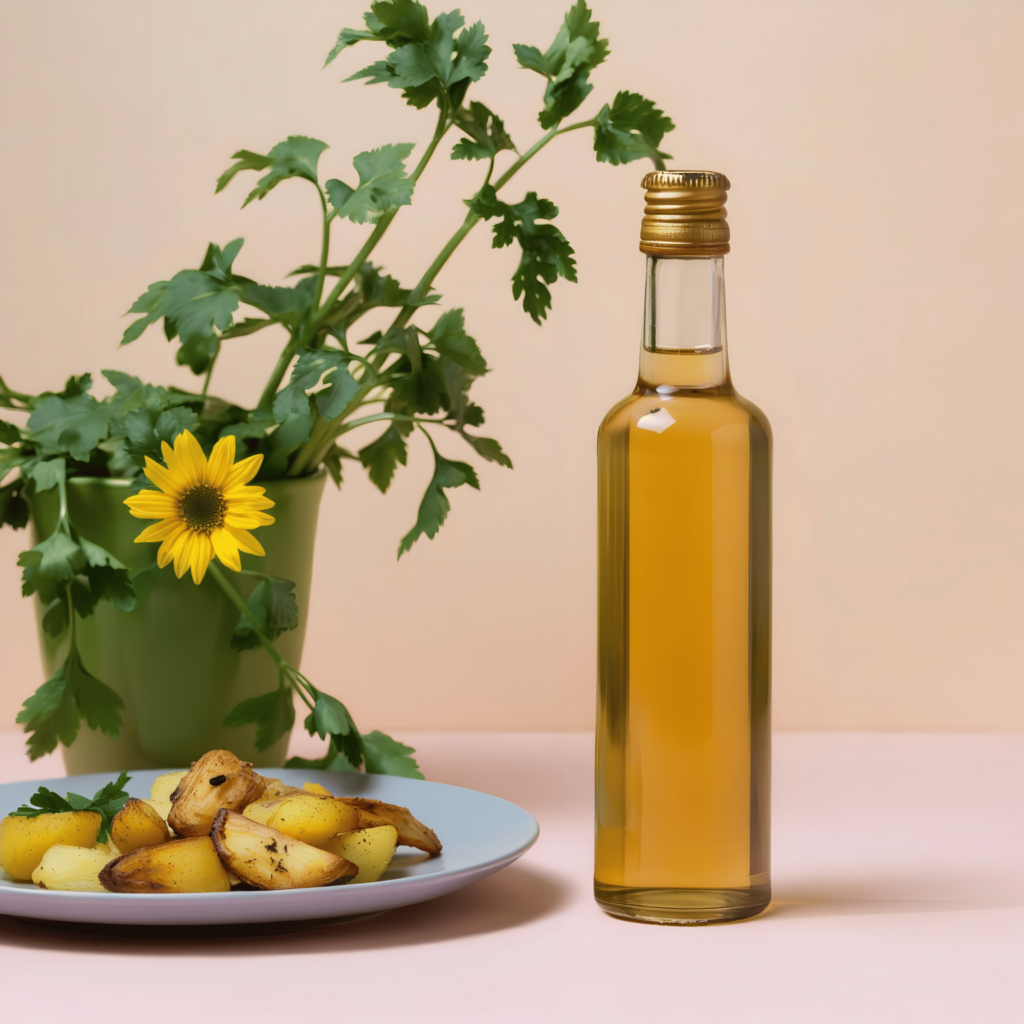
5. Sunflower and rapeseed oils
Both oils are rich in omega-6 fatty acids and vitamin E, which acts as an antioxidant to prevent cell damage. They are perfect for frying and baking and are the basis for many vegan dressings and mayonnaise. In international cuisine, they are often used in wok dishes, oven vegetables or as frying fat. Especially in winter, they can add a spicy, nutty flavour to hearty stews, roast potatoes and vegan stir-fries.
Warmth and energy for the winter
In the cold season, energy-rich foods are particularly in demand, as the body needs more energy to stay warm. Fats play a key role in this, as they are digested more slowly and therefore saturate the body for longer.
- Walnut and hazelnut oil:
These oils have a deep, nutty flavour and are perfect in winter salads with beetroot or in combination with roasted root vegetables. They are also ideal for refining hearty, warming soups. - Pumpkin seed oil:
Pumpkin seed oil is a treat, especially in the cold season. It has an intense flavour and goes well with pumpkin soups, baked potatoes or as a topping for hearty winter dishes. It is particularly popular in Austrian cuisine. It is also high in polyunsaturated fatty acids, which are good for heart health. - Avocado oil:
Another oil that provides variety, especially in winter. Avocado oil is rich in monounsaturated fats and vitamin E. It is perfect for salads, but can also be used to sauté vegetables or as a base for dressings. In vegan cooking, it is a valuable ingredient for creating nutritious and creamy dishes.
What to look out for?
Not all fats are equally suitable for use in the kitchen. In particular, trans fats, found in highly processed foods such as crisps, chips or industrial margarines, should be avoided because they are produced at high temperatures and are considered undesirable ingredients in many modern diets. Instead, the use of cold-pressed vegetable oils is recommended, as their natural processing enhances the flavour of dishes and they are versatile.
Cold-pressed oils, such as those made from sunflower seeds, pumpkin seeds, walnuts or linseed, are a wonderful addition to vegan and international cuisine. Not only do they add depth of flavour, but they can also be used in a variety of ways – in salads, hot dishes or to enhance already cooked dishes.
What is particularly important is to choose the right type of fat for each application. For example, some oils are better suited to frying or deep-frying due to their composition, while others are more suitable for cold dishes or as toppings. In any case, it pays to have a wide range of oils and fats to make the most of the versatility of international cuisine.
Whether in Mediterranean cuisine with olive oil, in Asian cuisine with coconut oil or in modern vegan cuisine with linseed or avocado oil, the choice is wide and the use of high-quality fats can add a new dimension of flavour to any dish – after all, fats are also flavour carriers. Not only can they enhance culinary enjoyment, they can also add variety to your diet and open up a world of flavours. an Aromen eröffnen.
